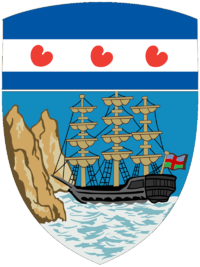Commonwealth Men

| ||||
| Type: | Pressure group, de facto political party, religious sect | |||
| Areas of support: | Joseph Town, Zuid-Richel | |||
| Supporters: | 2,000 (1720) | |||
| Goals: | Abolition of the Monarchy of the South Sea Islands, Disestablishment of the Protestantse Kerk in de Zuidzee-eilanden | |||
The Commonwealth Men is a political and religious movement in the South Sea Islands. Founded in 1720, the movement's primary goals are the abolition of the Monarchy of the South Sea Islands and the disestablishment of the Protestantse Kerk in de Zuidzee-eilanden.
Background
Following the implosion of Nova England, the monarchy of the South Sea Islands ceased to be hereditary and mirrored the presidency of Mercury instead.
Without the historic loyalty to Nova England to underpin it, the monarchy in the Commonwealth became diminished in the eyes of many South Sea Islanders.
While Mercury was almost universally considered a friendly state and valued ally, and Islanders felt no animosity towards its President, the basis for the arrangement was generally viewed as tenuous.
Simultaneously, religious unrest began to brew among the population of the Commonwealth. A new prayer book issued by the Protestantse Kerk in de Zuidzee-eilanden in 1720 dismissed many historical aspects of worship in the islands as superstition.
These changes led to calls for more freedom of worship in the islands and greater autonomy for individual congregations. Ultimately this unhappiness would manifest as a movement to disestablish the state religion.
Goals
-The Commonwealth Men movement has three stated objectives:
-The abolition of the Monarchy of the South Sea Islands and its replacement with a directly elected presidency. With this change, the Commonwealth would become a republic, and the constitutional monarchy would be removed.
-The abolition of the state religion and the disestablishment of the Protestantse Kerk in de Zuidzee-eilanden. Church property would be transferred to the individual congregations, who would be provided autonomy to choose their methods of worship.
-An overhaul of the electoral system, with the first past the post system replaced with proportional representation based on a party system.
-A new constitution to cement the changes outlined above.
Support
The Commonwealth Men's movement initially found little support among the South Sea Islands population. Many islanders had very little interaction with the national government, and, given the small resources available to the government, it didn't tend to intervene much in daily life.
However, the 1720 prayer book issued by the Protestantse Kerk in de Zuidzee-eilanden galvanized support for the movement more generally. While the prayer book was not the work of the government, the Commonwealth Men succeeded in attaching their broader goals to the religious dissatisfaction felt by many islanders.
By spring 1720, nearly 2000 islanders had become registered supporters of the Commonwealth Men, accounting for almost 20% of the Commonwealth's total population.
Methods
The Commonwealth Men's movement is broadly split into two factions. The first, and by far the largest, is a politically moderate faction committed to bringing about change by standing in elections to the Legislative Assembly and bringing about change within the existing political framework.
However, a minor second faction has called for more direct revolutionary action. This faction consists primarily of younger people and is ridiculed by many in broader society as calling for enacting the plotline to the hit TV show Polar Reds.
December 1724 Constitutional Referendum
The events surrounding the December 1724 Constitutional Referendum are considered a watershed moment for the Commonwealth Men, marking both their biggest successes and ultimate failure.
While the leadership of the group strongly endorsed their ideological and political programme, and were encouraged by the popular support they initially received, the electorate of the South Sea Islands ultimately rejected nearly all of the groups goals.